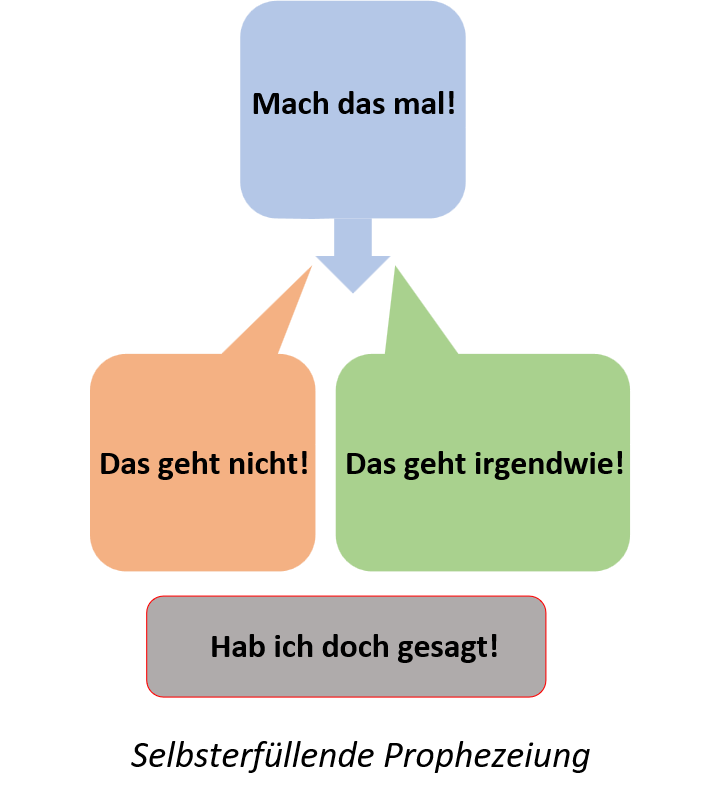Self-Fulfilling Prophecy
Learn how our thoughts affect our behavior and mood

A self-fulfilling prophecy is a psychological phenomenon that can be observed very often in humans. It's about how much our actions are influenced by our thoughts.
If we are convinced that we can fulfill a task or achieve a goal, this is very likely to happen. On the other hand, if we are convinced that we cannot do something, the probability of success decreases. The latter is called a self-destructive prophecy. In both cases, we subconsciously achieve the positive feeling of being right.

This effect not only works on oneself, but can also be transferred to others, as the following example shows:
Peter meets Michael at a party. Peter has already heard a lot about Michael beforehand. A friend told him that Michael seemed a bit reclusive and unfriendly. With these (prejudiced) thoughts about Michael, the two greet each other. Since Peter is mentally adjusting to an unfriendly, peculiar person, his greeting to Michael is rather cool and reserved. Michael notices this behavior and reflects it.
This is a natural reaction. This confirms Peter's prejudiced thoughts. This is how the self-fulfilling prophecy works.
This example shows very well that your own thoughts are reflected in your behavior. Peter's negative thoughts about Michael influenced his behavior. This was mirrored by Michael so that Peter's thoughts became reality and a self-fulfilling prophecy.
In the following example, Peter influences himself with his thoughts:
Peter would like to get his pilot's license. He completes the theory and practice without any significant disruptions. Now it's time for the exam. Although Peter is actually in the subject and knows the subject matter, he gets cold feet. He convinces himself that he would not pass the exam anyway. These negative thoughts mean that Peter subconsciously does not prepare enough for the exam. He is also very nervous during the exam. Peter actually fails the exam. Again, his thoughts have influenced his behavior, causing them to become reality. Nonetheless, Peter was right
But of course it also works the other way around:
If, before the exam, Peter keeps telling himself that he is well prepared and will pass the exam, then his chances that this will come true increase significantly. His positive thoughts mean that he prepares intensively for the exam and goes into the exam with confidence and less tension.
Both examples show very well how our thoughts influence our mood. Negative thoughts (“I can’t do this anyway!”) make us feel bad. Positive thoughts ("I can do it!") lead to a good mood.
This is also illustrated by the following example:
Peter loves game nights with friends and especially the Kniffel dice game. Naturally, dice games involve a lot of luck, as you have no control over how the dice fall.
Peter goes into each round with positive thoughts ("I'm going to roll something good!"). This makes him flexible and creative, so that (almost) every throw leads to an entry that is fine with Peter and advances him or his game. As a result, he can gain something good from (almost) every throw. Peter's mood is good. His thoughts become reality.
If Peter were to start with negative thoughts (“The numbers are always wrong anyway!”), the likelihood of Peter making mistakes in the combination or not realizing the opportunities that arise increases. Peter's mood is bad. His thoughts become reality.
Conclusion
The power of thoughts - whether negative or positive - should never be underestimated. Our thoughts affect both our behavior and our mood. Luckily we can decide for ourselves what we think.